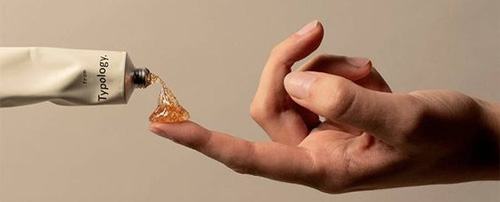In today’s fast-paced world, stress and anxiety have become a common part of life. But did you know that your mental well-being can directly impact your skin health? If you’ve ever noticed breakouts, dullness, or irritation flaring up during stressful times, you’re not alone. Anxiety and stress can wreak havoc on your skin, affecting your natural glow. Let’s explore how stress impacts your skin and what you can do to restore its radiance.
How Anxiety Affects Your Skin
1. Increases Oil Production → Leads to Breakouts
When you’re anxious, your body produces more cortisol, the stress hormone. This triggers your sebaceous glands to produce excess oil, which can clog pores and lead to acne breakouts. If you notice more pimples before an important event, stress might be the culprit.
2. Weakens Skin Barrier → Causes Sensitivity & Irritation
Anxiety can weaken the skin’s natural barrier, making it more prone to irritation, redness, and dryness. This means pollutants and allergens can penetrate more easily, causing flare-ups and sensitivities, especially in people with conditions like eczema and rosacea.
3. Triggers Inflammation → Worsens Skin Conditions
Chronic stress can lead to inflammation in the body, which may worsen skin conditions such as psoriasis, eczema, and dermatitis. If you’ve noticed your skin conditions flare up when you’re feeling overwhelmed, stress may be a contributing factor.
4. Disrupts Sleep → Results in Dull & Tired Skin
Anxiety often leads to sleepless nights, and lack of sleep can make your skin look dull, dehydrated, and prone to premature aging. Your skin repairs itself while you sleep, so a disrupted sleep cycle can prevent it from regenerating properly.
5. Promotes Unhealthy Habits → Damages Skin Health
When stressed, people often develop habits like excessive face-touching, picking at blemishes, skipping skincare routines, or consuming unhealthy food. All of these habits can contribute to worsening skin problems over time.
How to Manage Anxiety for Healthier Skin
Now that we understand how stress affects your skin, here are some ways to combat its effects and bring back your natural glow.
1. Practice Mindfulness & Relaxation Techniques
Meditation, deep breathing, and yoga can help lower stress levels, reducing cortisol production and keeping your skin calmer and clearer.
2. Get Enough Sleep
Prioritize 7–9 hours of quality sleep each night to help your skin repair and rejuvenate. A consistent bedtime routine can improve sleep and reduce stress.
3. Maintain a Healthy Diet
A balanced diet rich in antioxidants, omega-3 fatty acids, and vitamins can help protect your skin from inflammation and stress-related damage. Drink plenty of water to keep your skin hydrated.
4. Follow a Gentle Skincare Routine
Use soothing skincare products with ingredients like aloe vera, chamomile, and niacinamide to calm stressed skin. Avoid harsh exfoliants and stick to gentle, hydrating formulas.
5. Exercise Regularly
Physical activity helps release endorphins, the body’s natural stress relievers. Regular workouts can improve blood circulation, giving your skin a healthy, radiant glow.
6. Seek Professional Help If Needed
If anxiety is affecting both your mental health and skin, consider speaking to a dermatologist or a mental health professional for guidance on managing stress effectively.
Your skin reflects your inner health, and managing anxiety is just as important as having a good skincare routine. By reducing stress and adopting healthy lifestyle habits, you can protect your skin from stress-related damage and maintain a healthy, glowing complexion. Remember, self-care is the best skincare!


